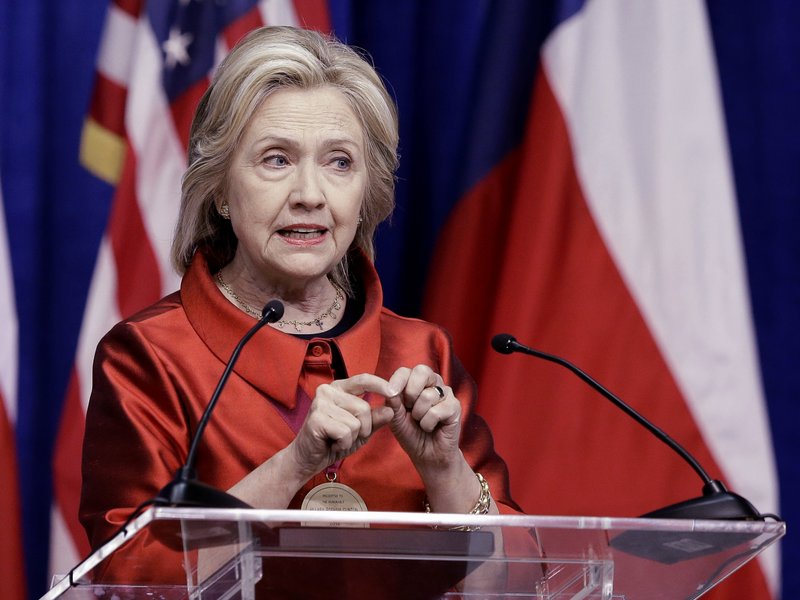HOUSTON -- Republicans struck back Friday against Hillary Rodham Clinton's suggestions that they have attempted to systematically disenfranchise voters. They accused the Democratic presidential candidate of running a divisive campaign and favoring lax controls on voting.
New Jersey Gov. Chris Christie, a potential GOP presidential candidate, said in Concord, N.H., that Clinton didn't know "the first thing about voting rights in New Jersey" and simply wanted to have an opportunity to "commit greater acts of voter fraud" across the nation.
Another potential Republican rival, Ohio Gov. John Kasich, told Fox News that Clinton was "dividing America" and overlooking the fact that Ohio has 28 days of early voting while her home state of New York doesn't have any. Ohio had 35 days of early voting until he signed a law last year lopping off a week.
"What is she talking about?" Kasich asked. "Don't be running around the country dividing America."
Clinton said Thursday in Houston that a group of current and former Republican governors pursuing the White House has "systematically and deliberately" tried to prevent millions of Americans from voting.
Clinton said the changes were aimed at making it more difficult for minority-group and low-income voters to cast a ballot, and she outlined steps to expand access to early voting and allow universal, automatic voter registration for young people.
It was the first time as a presidential candidate that Clinton singled out her potential Republican rivals by name, criticizing the voting policies of Wisconsin Gov. Scott Walker, former Florida Gov. Jeb Bush, former Texas Gov. Rick Perry and Christie.
Clinton cited Christie for vetoing a bill in New Jersey to extend early voting. She said Bush had conducted a "deeply flawed" purge of eligible voters in Florida by having the names of people who were mistakenly thought to be felons removed from voting rolls.
And she accused Walker of cutting early voting, making it harder for college students to vote, while she said Perry approved laws in Texas that discriminated against voters who are members of minority groups.
Democratic attorneys recently filed legal challenges to voting changes in Ohio and Wisconsin. One of the attorneys involved in the lawsuits is Marc Elias, who also is serving as the Clinton campaign's general counsel. Clinton's campaign is not officially involved in the lawsuits.
Walker, whose state has passed voter ID laws, said in a statement late Thursday that Clinton's "rejection of efforts to make it easier to vote and harder to cheat not only defies logic, but the will of the majority of Americans."
Christie vetoed legislation in 2013 that would have allowed in-person early voting at polling places and he has criticized same-day registration. New Jersey does have a mail-in early-voting system.
Democrats contend that Republicans overstate the incidence of fraudulent voting to justify steps that depress turnout from minority groups and other hard-to-reach voters, many of whom likely would support Democratic candidates. Republicans say Democrats overlook fraud because they want those votes.
Clinton will deliver what her team considers her first major speech next week, in New York, opening a new stage of her campaign. Clinton intends to paint the large Republican field as monolithic on policy in coming months.
Her team bills the New York speech as a campaign kickoff, although she launched her candidacy in April.
Information for this article was contributed by Ann Sanner and Jill Colvin of The Associated Press.
A Section on 06/06/2015


